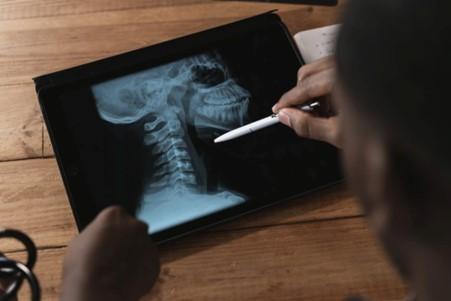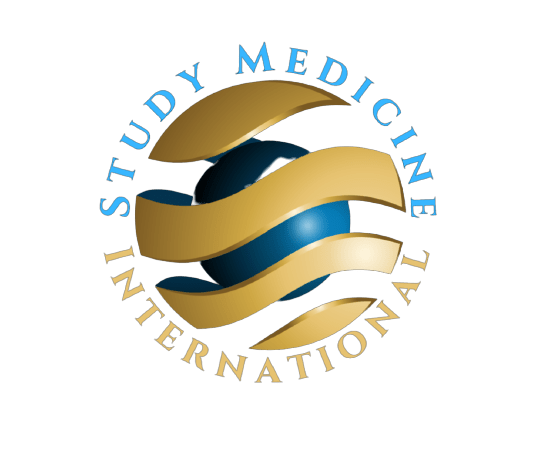
Tuition Fee
$ 5,500
Admission
No Entrance Exam
Intakes
March / October
COURSE LENGTH
6 Years (360 Credits)
HOSTEL
Girls/Boys Separate
Recognition
Worldwide
European University
The Faculty of Medicine of the European University has been operating since 2014. The aim of the faculty is to ensure the training of students in the field of health care in terms of academic freedom and institutional autonomy.
The teaching process at European University is led by well-known and recognized specialists in the field, who have many years of medical and pedagogical experience. A variety of teaching and assessment methods provide the opportunity to master at not only theoretical knowledge but also practical skills.
The Faculty of Medicine has signed cooperation agreements with about 60 clinics in Georgia, as well as with medical universities of different countries around the world. Professors and students of the Faculty of Medicine are members of various international scientific and professional associations. Based on all the mentioned above, apart from the practical training provided by the program, students have the opportunity to have clinical practice at various university clinics around the world, also to get involved in ongoing research projects at the faculty and participate in local and international scientific events. The student scientific journal “Biomedical and Core Clinical Research Practice” has been published since 2020.
There is a simulation centre at the faculty, where clinical/sectoral skills are taught and assessed through modern medical technologies, and mannequins in a simulated clinical environment.




Medical Doctor program MD [in the English] (6 Years – 360 Credits)
The programme aims to train a competitive professional doctors in accordance with modern international standards, who:
- possesses the theoretical knowledge and practical skills required for professional activities.
- Guided by the principles of evidence-based medicine
- Uses research and communication skills
- Shares ethical norms and principles
- Professionally evolving in an ever-changing environment
Structure of the program
The medical program is divided into 4 phases:
Phase I – Structure and functions of the human body (I-II course)
The fundamentals of medicine include the basic concepts of the biomedical sciences and the structure-function of the human body. During the first two courses, students will learn about the structure of the human body, life sciences and research principles in the field, clinical and professional skills (communication and procedural skills, medical ethics), and the basics of public health. The teaching of these integrated modules will be carried out using various teaching-learning methods and activities (interactive lectures, role-playing games, practical work, work in a simulation laboratory, etc.). Students will master key practical skills (patient interview) in a clinical setting. Through simulation, teaching students will gain experience-based knowledge; Students will also study regional anatomy through virtual dissection of specific clinical cases and discussion on mannequins. In addition, from the second year, students will be involved in a long-term problem-based learning (PBL) problem-based learning course.


Phase II – Health and Illness Mechanisms (Course III)
During the second phase (pre-clinical course), the focus is on the introduction to clinical medicine (propaedeutics and clinical skills), general pathology and pharmacology. This phase is mainly focused on the most common symptoms and signs of the diseases that most clearly reflect the basic concepts of these disciplines. In addition, students improve their physical tasting skills. During the III year, students learn diagnostic thinking by reviewing case studies from different medical disciplines, which in turn helps to integrate the knowledge gained and prepares students for a full understanding of the clinical subjects of which. Initiation in the program will take place from next year. Within the longitudinal module of clinical and professional skills, students are involved in the process of solving a clinical problem, which in turn is accomplished through a variety of clinical scenarios (clinical thinking course); This method focuses on in-depth analysis and synthesis of information among students, as well as its practical application in the clinical context.
Phase III – Basic Clinical Rotations (IV-V Course)
During the IV and V courses, students study the main clinical subjects in the form of clinical rotations – internal medicine (system-based), surgery, obstetrics and gynecology, emergency medicine, pediatrics, psychiatry, radiology, otorhinolaryngology, etc. In parallel, students continue to study
clinical and professional skills, which includes perfecting professional behavior in a clinical skills laboratory and clinical setting. These modules are taught in both outpatient and clinical settings. At the end of each rotation, the student passes an integrated test. (Test questions with multiple choice OSCE answers).


Phase IV – Clinical Rotations – Final Stage (VI Course)
VI, during the final year, students will have additional clinical activities to demonstrate and perfect their competencies in Internal Medicine, Surgery, Obstetrics-Gynecology, Infectious Diseases, Family Medicine, Ophthalmology, Geriatrics, Pediatrics and Gad. According to the requirements of the spiral curriculum and the principles of integration, basic subjects (e.g., pharmacology and medical genetics) are reviewed within the modules of the graduate courses. Under the same course, a small group of students is given a variety of outpatient and inpatient clinical assignments, the performance of which prepares graduate students for future specialization and postgraduate residency programs. At the end of the graduation course, students take the Integrated Examination (OSCE)
Compulsory component of the program – 332 credits
Elective component of the program – 28 credits (14 credits – Elective courses in the main field of study, 14 credits – Elective / free courses)
Elective courses in the main field of study: Pain Management, Medical Management, Laboratory Medicine, Clinical Nutrition, Allergology, Clinical Psychology, Precision Medicine, Clinical Technologies, Sexology, Necrology.
